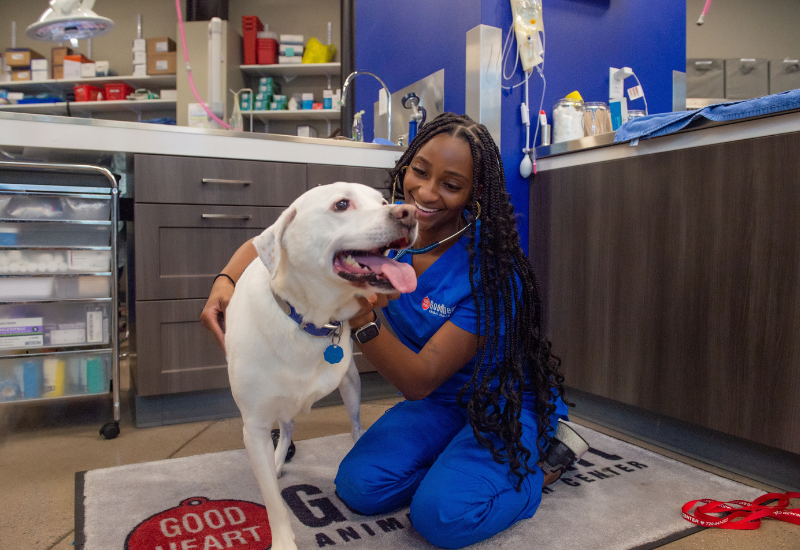Enjoyable Tasks You Can Appreciate with Your Pets to Strengthen Your Bond
Understanding Your Pets' Nutritional Demands for Ideal Well-being

Importance of Well Balanced Diet Plans
Making certain a balanced diet plan for pets is important for their overall health and wellness. Pets, like humans, need a mix of proteins, carbohydrates, vitamins, fats, and minerals to maintain optimal wellness.
Incorporating a range of nutrients ensures that animals maintain a robust immune system, healthy skin, and a glossy coat. A well balanced diet plan can stop a host of health and wellness problems such as excessive weight, which is connected to diabetics issues and joint problems, or lack of nutrition, which can lead to developmental delays and body organ disorder.
Pet owners have to be conscious of part sizes and caloric consumption, as overfeeding or underfeeding can have significant effects. Consulting with vets or pet nutritional experts can aid customize diet plans to meet specific requirements, making certain that pet dogs get the appropriate equilibrium of nutrients needed for their age, dimension, and activity degree. A balanced and constant diet plan is indispensable for a pet dog's durability and joy.
Species-Specific Nutritional Needs
How do different varieties of pets have varying nutritional demands? Each species possesses special metabolic paths, gastrointestinal systems, and dietary demands that must be met for optimal wellness.
Birds, relying on their species, may need a diet rich in fruits, insects, or seeds, highlighting the diversity within the avian world. Pets. Reptiles, such as turtles and snakes, similarly demand species-specific diet plans, with some needing high levels of calcium and others, a well-calibrated balance of insects and plant matter
Understanding the nutritional distinctions among various species is imperative for family pet owners. By acknowledging and catering to these distinctions, we make sure the provision of correct nourishment, sustaining the overall wellbeing and vitality of our pets.
Age and Dimension Considerations
While species-specific nutritional needs lay the foundation for a pet's size, age and diet further refine these requirements. Young animals, such as puppies and kitties, need diets abundant in calories, healthy proteins, and essential nutrients to support quick development and advancement. These young creatures have higher metabolic prices and require more frequent feedings to maintain their energy levels and ensure appropriate growth of muscle mass, bones, and organs.
As pet dogs age, their dietary needs transform considerably. Adult animals typically need less calories than their more youthful equivalents but still need a well balanced diet regimen to keep overall health and wellness and vitality. Formulas created for grown-up animals typically concentrate on preserving weight, promoting digestive system health, and supporting an active lifestyle. Conversely, senior pets might gain from specialized diets that attend to age-related difficulties, such as joint health and wellness, cognitive function, and body organ support.

Health And Wellness Issues and Dietary Adjustments
Specific health and wellness problems can substantially influence see this the nutritional demands of family pets, requiring customized dietary modifications to support their health. As an example, pets with diabetes may take advantage of diet regimens that are high in fiber and low in basic carbs to help manage blood sugar degrees. Likewise, overweight animals usually require reduced-calorie diets to advertise weight loss and prevent connected health and wellness issues.
Family pets with kidney condition may require diet regimens reduced in phosphorus and protein to ease kidney work. Omega-3 fatty acids, recognized for their anti-inflammatory buildings, can be advantageous for pet dogs enduring from problems like arthritis or inflammatory digestive tract condition. In addition, animals with food allergies or intolerances might need hypoallergenic diet regimens, frequently calling for a procedure of elimination to determine and exclude offending active ingredients.
Vet assistance is crucial when making dietary changes, as incorrect nourishment can aggravate existing illness or result in new ones. Regular surveillance and modifications based on the pet's reaction to dietary modifications are important. A balanced strategy, considering both nutritional and medical needs, guarantees that dietary treatments add favorably to handling health and wellness problems, enhancing not only the family pet's wellness however likewise their top quality of life.
Tips for Picking Quality Pet Food
Selecting the appropriate pet dog food is critical for ensuring your family pet's health and wellness and longevity. A balanced diet regimen supports their immune system, keeps healthy weight and advertises total vitality. Begin by consulting your vet to understand your animal's specific dietary demands based upon age, breed, and health status.
When reviewing pet food, look at the active ingredient checklist. Premium animal foods often provide real meat, chicken, or fish as the main ingredient.
This suggests the food meets recognized dietary requirements. Brand names with a background of recalls or inadequate top quality control must be come close to with caution.
Take into consideration whether your animal would benefit from unique formulas such as grain-free, high-protein, or limited-ingredient diets. These can be beneficial for animals with allergies or specific health and wellness Find Out More issues.
Verdict
A thorough understanding of pets' nutritional requirements is crucial for advertising their optimum wellbeing. By adhering to these principles, animal proprietors can dramatically contribute to their animals' development, energy levels, and general health and wellness, cultivating a happier and healthier life.

Choosing the best family pet food is critical for ensuring your family pet's health and wellness and durability. By sticking to these concepts, pet owners can considerably contribute to their animals' growth, power degrees, and general health and wellness, promoting a happier and healthier life.